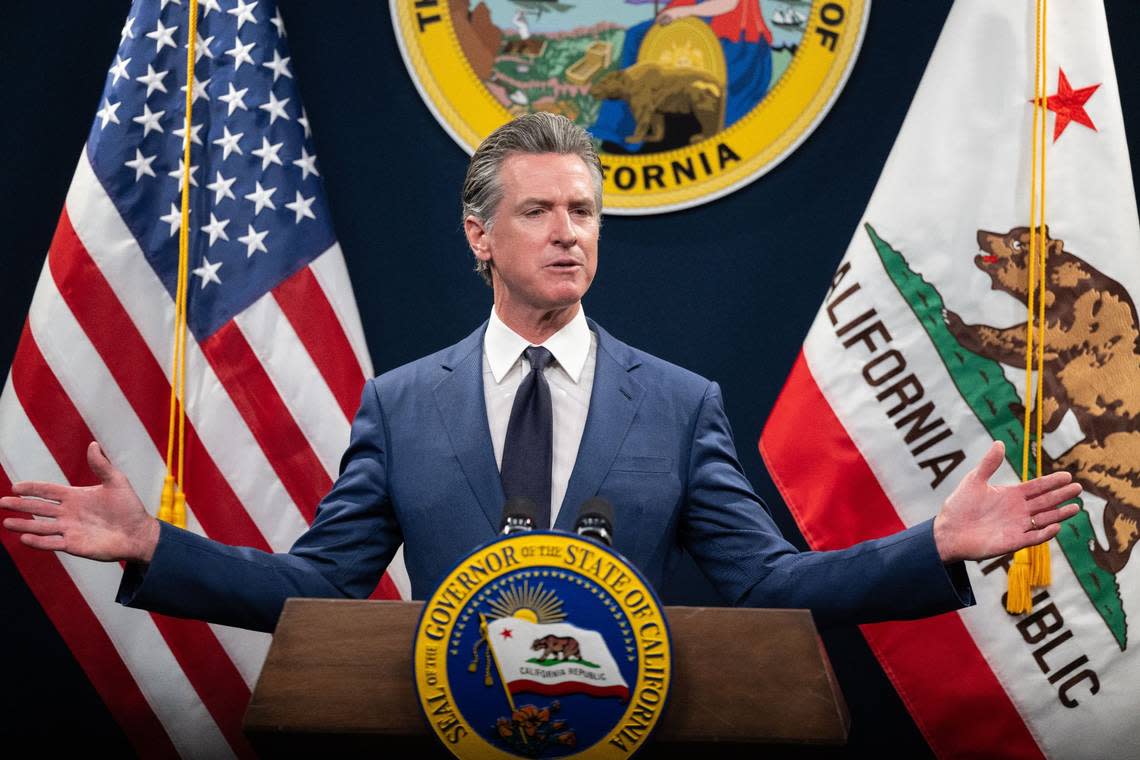Deal reached to keep repeal of California worker protection law off November ballot

- Oops!Something went wrong.Please try again later.
An initiative aimed at repealing a landmark California law that gave workers the right to sue their employers for themselves and other workers will stay off the November ballot following an agreement reached by labor and business groups with Gov. Gavin Newsom.
Among other changes, the deal aims to reform the two-decade old Private Attorneys General Act (PAGA) by capping penalties on employers who act quickly to adjust practices, increasing the penalty share of payments for workers, allowing courts to issue injunctions to force businesses to fix labor violations and requiring workers to experience firsthand the alleged violations they site in a claim, the Governor’s Office said Tuesday in a news release announcing the agreement.
“We came to the table and hammered out a deal that works for both businesses and workers, and it will bring needed improvements to this system,” Newsom said in a statement. “This proposal maintains strong protections for workers, provides incentives for businesses to comply with labor laws and reduces litigation.”
The agreement to reform PAGA “avoids a contentious ballot measure campaign,” the administration’s press release noted.
The deal was hailed by labor unions and business leaders.
“We are happy to have negotiated a deal that preserves PAGA and improves upon it, by adding injunctive relief to end abusive practices and incentivizing employers to come into compliance and make workers whole,” said Lorena Gonzalez, principal officer of the California Labor Federation, AFL-CIO. “PAGA is an essential tool to hold corporations accountable for widespread wage theft, safety violations, and misclassification.”
Jennifer Barrera, President & CEO of the California Chamber of Commerce, urged quick passage of the agreement by the Legislature.
“This package provides meaningful reforms that ensure workers continue to have a strong vehicle to get labor claims resolved, while also limiting the frivolous litigation that has cost employers billions without benefiting workers,” Barrera said.
A coalition of labor organizations, worker advocacy and attorneys’ groups said in a press release that “the agreement protects workers’ right to hold abusive employers accountable through PAGA, and incentivizes employers to treat their workers with the dignity and respect they deserve while increasing penalties for the most abusive employers.”
“Though we’ve successfully negotiated a dangerous measure off the November ballot – we can only hope that this deal encourages more employers to follow the law and pay their workers what they are owed,” said Kathryn Stebner, president of Consumer Attorneys of California.
Assembly Speaker Robert Rivas, D-Salinas, said the “hard-earned agreement” protects both workers and recognizes companies that follow labor laws, while beefing up enforcement.
“I grew up watching farmworkers and employers find common ground, so it means a lot to me that so many groups came together and found consensus,” he said.
The November ballot initiative would have repealed PAGA, which allowed “employees to file lawsuits on behalf of themselves and other employees against employers to recover monetary penalties for certain state labor-law violations,” according to the Secretary of State’s website.
A summary by the Legislative Analyst’s Office and the Department of Finance of the fiscal impact of the initiative on state and local governments noted that the measure would likely increase state costs to enforce labor laws by more than $100 million per year. And, it would reduce the state’s penalty revenue used for labor law enforcement by tens of millions of dollars annually.
Once the Legislature approves the bill reflecting the deal and Newsom signs it, proponents of the businesses backed initiative will then withdraw the ballot measure. The bill would have to be signed by the governor by June 27, the deadline for the Secretary of State to certify ballot measures for the November general election.

